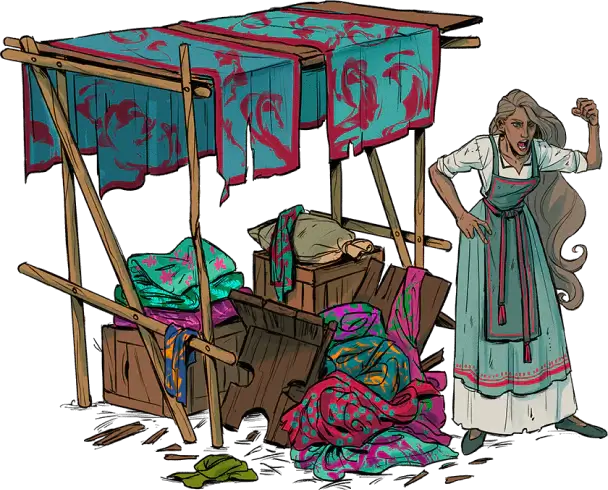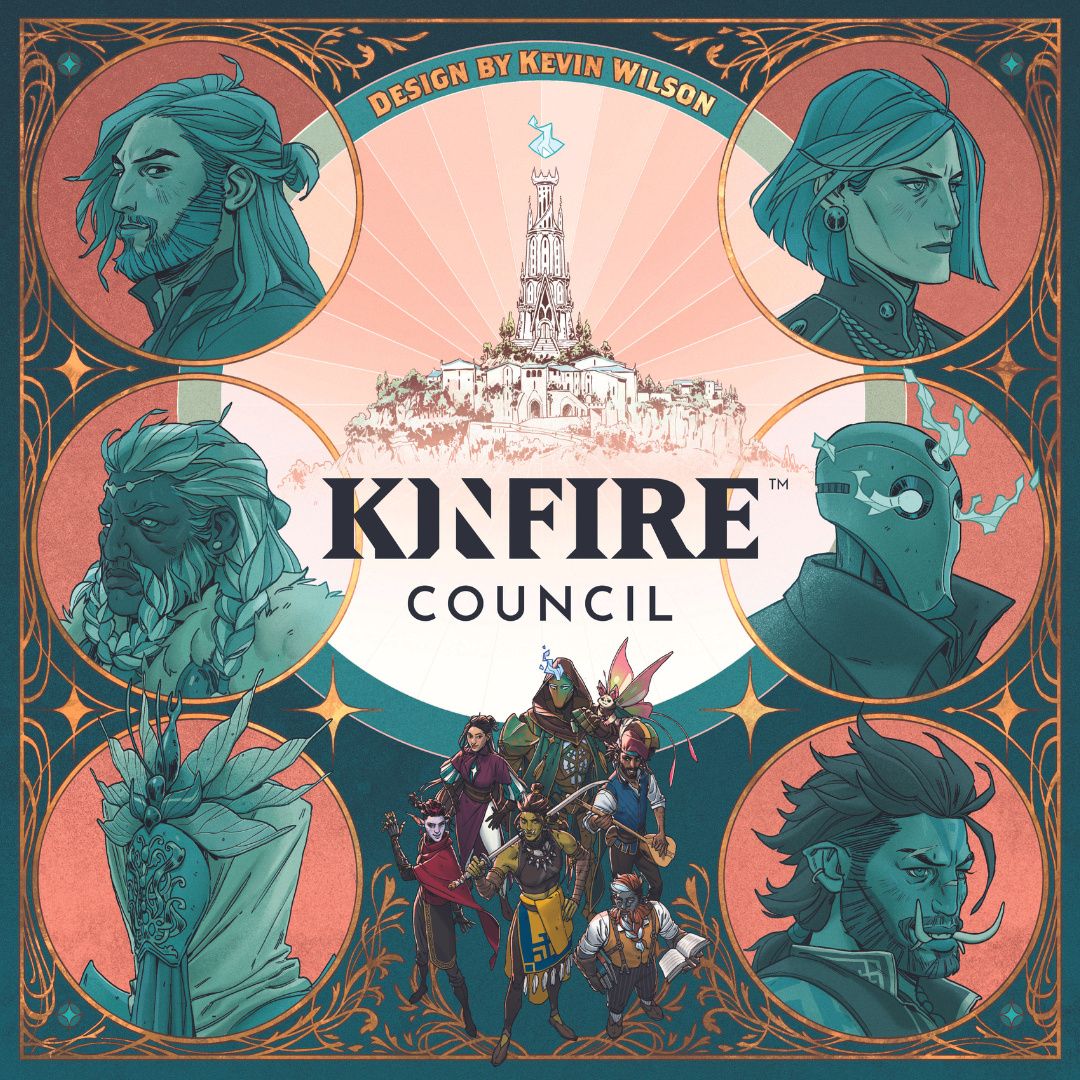Greetings, everyone! So, at the moment, I’m still firming up the game to get it ready for the kickstarter in April, but I think a lot of the big concepts are stable enough to talk about now.
When I first sat down to brainstorm the design for Kinfire Council, I had only vague notions of the sort of game I wanted it to become. The players were going to play as the City Council members that we first met in Kinfire Chronicles, this time being in charge of the city of Din’Lux and bossing the Seekers around as they work to make the city thrive while advancing their own goals. Ultimately, I decided on 3 main aspects to focus on in the design - politics, labor, and threats to the city. The first one that really solidified for me was Politics, so that’s what I’m going to focus on in this first designer diary. I knew that I wanted the players to vote on various issues as part of the core experience, and I wanted to ensure that it both felt fresh enough and was central to the game.
To that end, I looked at several other games and messed around with a couple of different systems before coming up with something I really like:
At the start of every round, two decrees are drawn from the decree deck and placed face-up on the docket. These are what the players are voting on, and only one of them will pass at the end of the round.

As the round progresses, you’ll send your workers out to gather resources and perform other actions for you, and one of these resources is votes. Each time you gain a vote, you take one of your influence tokens and place it over one of the decrees on the docket. Once the round ends, the decree with the most votes on it passes, and the others do not. This forms a good basic structure on which to hang a lot of opportunities for interesting decisions and fun game moments.
Of course, to make a mechanic really sing, it comes down to the details. And as I’ve played with this mechanic, 4 kinds of decrees have emerged, each behaving in a certain general way.
The first kind of decree is a Law. Once passed, a law stays in play for the rest of the game as a new game rule. Urban Renewal is a good example of a law. Once passed, it allows players to spend money from the city’s coffers to improve certain locations on the board rather than spending their own money to do so. The coffers are a sort of communal pool of money that come from taxes paid by the players over the course of the game and serve as fuel for this sort of game effect, but I’ll talk more about that when I cover the Labor portion of the game.

The second kind of decree is an Order. If passed, an order takes effect once and is then discarded. Although orders are often not as impactful as laws, that doesn’t stop them from having some really interesting design space to play with. For instance, Shady Deals is an order that gives the players 2 coin for each vote they place on it, but if it passes, it’s bad for the city’s stability as a whole. Having these kinds of incentives built in here and there can make a player’s voting decisions a lot less cut and dry.

The third kind of decree is an Election. When an election passes, the player with the most votes on that election (known as the lead sponsor) takes the card and keeps it. Often this gives that player a bit of recurring income or an ongoing ability. As an example, Holder of the Leylines lets the player who keeps it spend 1 of their influence to gain a magic resource each round. Elections can give a player a key advantage, but they can be hard to get passed since they usually only benefit one player.

Finally, the last kind of decree is called a Crisis. These don’t so much represent ordinances passed by the Council as they do actions taken in response to a political firestorm. See, a crisis does nothing if passed - it’s merely discarded and life goes on. It’s only when a crisis FAILS to pass that it triggers, usually unleashing some unpleasantness upon the players. An example of a crisis is Cult Recruitment. Unless it’s passed, it unleashes an extra 3 cultists on the city, which can be a real bummer depending on your strategy. Wait, cultists? Well, yes, but we’ll talk more about those when I write about threats to the city. All you need to know for now is that they’re bad news, which is the defining theme for crises. These decrees add an extra bit of spice to the voting. Yes, you want to become the Holder of the Leylines, but is it worth letting Cult Recruitment trigger to do so? And even if you don’t think so, how do the other players feel about the matter?

So, having a steady flow of decrees to vote on every round creates a fluid framework of player incentives. What’s most important for you to pay attention to this round? How will you respond if one of the other players makes a bid to win a powerful election? Will you try to beat them out or form a coalition with the other players to stop a looming crisis instead?
This is all complicated by the fact that you have a limited amount of influence. If you tie up your influence tokens as votes, you can’t use them for other important things such as meeting the City’s Needs, working to build new Kinfire lighthouses, becoming a patron to important businesses in the city, or sending your Seeker to thwart major threats to Din’Lux. But hey, nobody ever said politics was easy.
Anyway, this is just a glimpse into one part of the game design, but I hope it starts to show you some of the possibilities it opens up.
-Kevin Wilson




